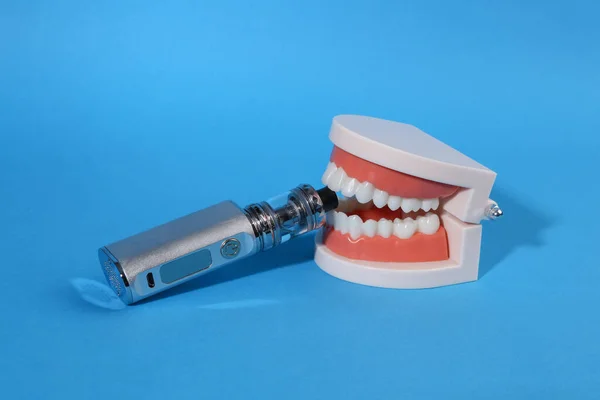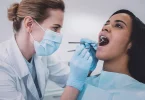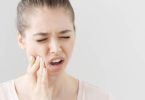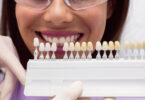The purpose of vaping as a method is to cease smoking. When it comes to assessing the effects of vaping on oral health, it’s only right to look at it from the perspective of smoking versus vaping.
Everybody knows that smoking can be disastrous to one’s oral hygiene. Marketing smoking is illegal around the world, but people still look for nicotine. This is why more people have now switched to vaping to help them quit smoking. People opt for vaping even if it is relatively a new concept, and studies about its effects are still inconclusive.
Vaping and Bacteria in the Mouth
Whether you vape or smoke, tar, and nicotine stay in and around the mouth until the mouth is totally cleaned and cease smoking altogether. With vaping, however, no particulate matter is produced, unlike smoking. This means that fewer bacteria are produced in your mouth. What is in vape juice? The main ingredients of the e-liquid are water, the base liquids propylene glycol (PG) and vegetable glycerin (VG), flavorings, and nicotine which can be optional. The flavorings used in vape juices often mimic the taste of fruits, tobaccos, and mints. None of these ingredients is known to put one at risk of being in contact with bacteria or mold.
What about Teeth Stains?
It is common knowledge that smoking can cause the teeth to turn yellow. This is because of the tar and nicotine found in it. With vaping, you can decide on the amount of nicotine and tar to use. You may also vape without using nicotine. And when you don’t use nicotine in your e-liquid, it is not likely for your teeth to get stained. Simply put, the more nicotine you take in, the more likely your teeth to become stained. Vaping and e-liquids don’t result in a tar build-up. Tar build-up is another cause of teeth discoloration.
All about Poor Circulation
Bacteria may multiply due to poor circulation when one smokes. When it comes to vape, there is no need for tobacco or grit to be present. Since you can choose to vape without using nicotine, this means that your level of circulation won’t be as damaging as smoking. You cannot deny that vaping can cause dry mouth, which is a result of coil heating and heat being distributed around the mouth. This can be solved by way of staying hydrated.
Vaping is not completely safe. For one, it may cause dry mouth and this dryness may cause the buildup of bacteria on your teeth and gums. This is because there is not much saliva to wash away the bacteria. Vaping may also conceal gum disease. As a vasoconstrictor, nicotine can narrow or constrict the blood vessels in the gums. Red and swollen gums are early indications of gum disease. These early signs can be missed until the periodontitis becomes worse.
Minimizing the Side Effects of Vaping on Oral Health
When you vape, it is crucial to take extra care of your teeth. There are several ways to reduce the risk of oral side effects when vaping.
Limit the nicotine strength
When you choose the low-nicotine or nicotine-free e-juices can reduce the negative effects of nicotine on your gums and teeth.
Drink water after every vaping session
By rehydrating after a vaping session, try to steer clear from dry mouth and bad breath.
Make sure to brush your teeth twice daily
Brushing your teeth helps get rid of plaque. This prevents the formation of cavities and enhances overall gum health. It’s better to use toothpaste that has fluoride. Wait for 20 minutes after vaping before you start brushing. This will make sure that the enamel of the teeth will be weakened. There are many other benefits of brushing your teeth twice a day.
Don’t forget to floss before you go to bed
Flossing is an added teeth cleaning method to brushing. It also removes plaque and promotes gum health.
Make it a habit to visit the dentist regularly
Visit the dentist every six months for cleaning and consultation. Having a regular dental cleaning schedule will help in the early detection and treatment of any dental condition that may not be obvious.
Flavored vape juices are more likely to cause gum inflammation compared to non-flavored e-liquids. By reducing or removing these ingredients may help in lessening the risk of side effects.
Once you notice any of the following symptoms, it is better to consult your dentist right away: loose teeth, receding gums, toothache or any type of mouth pain, swollen gums or bleeding, mouth sores, and ulcers that don’t seem to heal at all, and becoming more sensitive temperature. Sometimes these may be coupled with fever or swelling in one’s face and neck.









My dentist wants me to stop vaping only because she is a prude. If I told her that I quit, she’d never know because I don’t smell like smoke for over 11 years now. My gums are healthy and pink and have been since I quit smoking. I quit smoking on the DAY I bought my first vape and I have never looked back.
That said, my dental hygienist has told me more than once that there is nothing she can see that would indicate gum disease or tooth decay caused by vaping. So, to wrap it up here, drawing water vapor and flavoring along with a little nicotine does NOT cause tooth decay. Not brushing your teeth, not flossing, and sugar cause tooth decay, vapor does not.